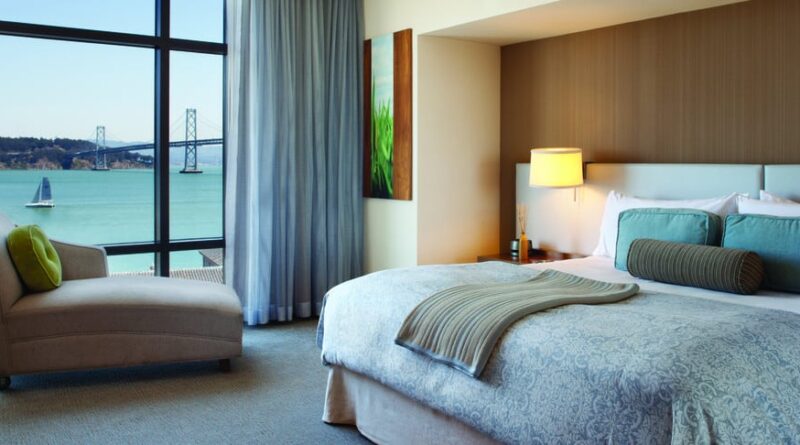Unlocking Opportunities: Securing a Business Loan to Buy a Hotel
Purchasing a hotel can be an exciting yet daunting venture. With the right financing options, aspiring hotel owners can turn their dreams into reality. Business loans specifically designed for hotel purchases are crucial in this journey, providing the necessary capital to acquire and manage a property effectively. In this guide, we will explore the different types of business loans available, the steps involved in securing them, and the various factors lenders consider. We will also highlight success stories, address common questions, and provide essential tips for first-time buyers.
Introduction to Business Loans for Hotel Purchases
The hotel industry is an ever-evolving sector that continues to attract investors due to its potential for substantial returns. According to the American Hotel and Lodging Association, the hotel industry contributes significantly to the economy, generating billions in revenue annually. However, entering this market often requires substantial financial investment, which is where business loans come into play.
A business loan for purchasing a hotel can help cover the costs of the acquisition, renovations, and initial operational expenses. It is essential for buyers to understand their financing options and choose the one that best aligns with their financial situation and business goals.
Types of Business Loans for Hotel Purchases
Conventional Loans
Conventional loans are traditional financing options provided by banks or credit unions. They typically require a higher credit score and a substantial down payment (usually around 20-30% of the purchase price). While these loans can have lower interest rates compared to other options, the stringent qualification criteria may make them challenging for some borrowers.
SBA Loans
The Small Business Administration (SBA) offers various loan programs that can be advantageous for hotel purchases. The most common options include the SBA 7(a) and 504 loan programs.
SBA 7(a) loans can be used for various purposes, including purchasing real estate, equipment, and working capital. They usually offer lower down payment requirements and longer repayment terms than conventional loans, making them an attractive option for many hotel buyers.
SBA 504 loans are designed for purchasing fixed assets, including real estate. They typically feature lower interest rates and can finance up to 90% of the purchase price, making them ideal for first-time hotel buyers.
Hard Money Loans
For those who may not qualify for traditional financing, hard money loans can serve as an alternative. The property being bought serves as security for these asset-based loans. Hard money loans typically have higher interest rates and shorter repayment periods than conventional loans, making them more suitable for short-term financing needs. They are often used by investors looking to flip properties or acquire distressed assets.
Steps to Secure a Business Loan for a Hotel
Assessing Financial Health
Before applying for a loan, it is crucial for potential hotel buyers to evaluate their financial health. This involves checking credit scores, reviewing financial statements, and determining their debt-to-income ratio. A strong financial position will enhance the chances of securing favorable loan terms.
Choosing the Right Lender
Selecting the right lender is essential in the loan application process. Potential borrowers should consider factors such as the lender’s experience in hotel financing, customer service reputation, and loan terms. Researching various lenders and comparing their offerings can lead to better financing outcomes.
Preparing Documentation
Proper documentation is vital for a successful loan application. Common documents required include:
A comprehensive business plan outlining the hotel’s operational strategy, target market, and financial projections.
tax returns for individuals and businesses from the previous three years.
Financial statements, such as balance sheets, cash flow statements, and profit and loss statements.
A property appraisal to determine the hotel’s market value.
Loan Application Process
Once the necessary documentation is gathered, borrowers can begin the loan application process. This typically involves submitting an application form and supporting documents to the lender. After reviewing the application, the lender may request additional information, conduct a property appraisal, and evaluate the borrower’s creditworthiness before making a lending decision.
Factors Lenders Consider for Hotel Loans
When evaluating loan applications for hotel purchases, lenders consider several factors:
Property Valuation
A professional appraisal is essential for determining the fair market value of the hotel. This valuation helps the lender assess the risk associated with the loan and ensures the property’s value aligns with the purchase price.
Cash Flow Projections
Lenders examine expected income and expenses from hotel operations. They typically require a detailed analysis of projected cash flow to ensure that the hotel can generate sufficient revenue to cover loan payments and operational costs.
Market Analysis
Understanding the hotel’s location and competitive landscape is crucial. Lenders analyze local market trends, occupancy rates, and the overall demand for hotel services in the area to gauge the property’s potential for success.
Borrower Qualifications
Lenders review the borrower’s credit history, business experience, and management team. A strong track record in the hospitality industry can enhance the borrower’s credibility and improve their chances of securing financing.
Advantages of Business Loans for Buying Hotels
Leverage Your Investment
One of the primary benefits of obtaining a business loan is the ability to leverage your investment. By using borrowed funds, buyers can acquire larger properties and expand their portfolios without requiring substantial upfront capital.
Potential Tax Benefits
Business loans can offer various tax advantages, including deductions on interest payments and depreciation on the property. Consult with a tax professional to understand how these benefits can impact your overall financial situation.
Growth Opportunities
Loans can be utilized for renovations, expansions, or marketing efforts, which can significantly enhance the hotel’s value and increase revenue streams.
Challenges in Securing Business Loans for Hotels
Stringent Qualification Requirements
While business loans provide valuable financing options, they often come with stringent qualification criteria. Borrowers may face challenges related to credit scores, financial history, and the availability of collateral.
High Interest Rates
Depending on the type of loan secured, interest rates can be relatively high, particularly for hard money loans. This can impact the profitability of the hotel if not carefully managed.
Market Volatility
The hotel industry can be subject to economic fluctuations and market volatility. During downturns, occupancy rates may decline, affecting cash flow and the ability to repay loans.
Case Studies of Successful Hotel Purchases
Case Study 1: Conventional Loan Success
A hotel investor sought to acquire a boutique hotel in a popular tourist destination. They secured a conventional loan with a 25% down payment and used a detailed business plan showcasing strong cash flow projections and market research. The hotel thrived, generating increased occupancy rates and enabling the investor to refinance at lower interest rates within a few years.
Case Study 2: SBA Loan Transformation
Another investor purchased a distressed hotel using an SBA 504 loan. The low down payment allowed the buyer to invest in extensive renovations, transforming the property into a premier destination. Within two years, the hotel’s occupancy rates surged, and the investor successfully increased room rates, substantially boosting revenue.
Tips for First-Time Hotel Buyers
Conduct Thorough Research
Before purchasing a hotel, conduct extensive market research to understand trends, demand, and competition. You can use this information to make wise judgments.
Work with Experienced Professionals
Collaborate with real estate agents, brokers, and financial advisors who specialize in hotel transactions. Their expertise can guide you through the complexities of the acquisition process.
Prepare for Operational Management
Being a hotel owner involves operational management responsibilities. Ensure you have a clear plan for staffing, marketing, and maintaining high service standards to attract and retain guests.
Frequently Asked Questions (FAQs)
What types of loans are best for buying a hotel?
The best loan type for buying a hotel depends on the buyer’s financial situation and goals. Conventional loans, SBA loans, and hard money loans all have unique advantages, so evaluating each option carefully is crucial.
How do I improve my chances of getting approved for a hotel loan?
Improving your credit score, preparing detailed financial documentation, and demonstrating a strong business plan can enhance your chances of loan approval.
What are the average interest rates for hotel financing?
Interest rates for hotel loans can vary significantly based on the loan type, the borrower’s creditworthiness, and market conditions. Generally, conventional loans have lower rates compared to hard money loans.
Contact Us for Your Hotel Financing Needs
At Hotel Loans understands the complexities of securing financing for hotel purchases. Our team of experts is here to help you navigate the process and find the best loan options for your needs. Whether you are a first-time buyer or an experienced investor, we can provide personalized consultations and support. Contact us today to explore how we can assist you in making your hotel investment a success.




